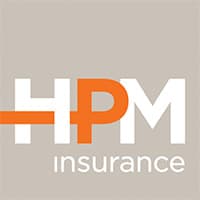It is always a good idea to ensure you are not wasting money, especially during challenging economic times. As insurance is a necessity and a significant part of any household budget, check out these 10 tips on saving money on NH home and auto insurance.
10 Tips to Save Money on NH Home and Car Insurance
1. Review your NH home insurance and NH car insurance policies when received
An insurance policy is a daunting document that many people simply file away year after year and assume the best. However, only you know what you own, so it is critical to look at your policy to ensure it is accurate. Here are some key things to look for:
- Is there a car on the policy you no longer own?
- Is there a driver included that has their own insurance?
- Are all cars and drivers included?
- Is the named insured and property listed accurately?
- Have you installed a security system since you obtained home insurance?
2. Consider increasing your deductibles on your NH car or home insurance policies
The higher the deductible, the lower the premium and vice versa. If you have not looked at your deductibles in a while, check them out. A good guide is to pick a deductible you could afford to pay if necessary while making the premium savings worth the increase.
A good example is if your policy was written many years ago when the standard deductible was in the $100 to $250 range for homeowners and on auto collision coverage. Unfortunately, $100 or $250 does not get you what it once did, so you are likely being surcharged by your insurance company by having a deductible this low.
Deductible options on home insurance is typically, $100 (if grandfathered), $250, $500, $1,000, $2,000, $5,000 or $10,000. It is not advised to file a claim less than your deductible, and not much can be repaired nowadays for less than $500, so it is suggested you have at least a $500 deductible.
It is only advised to have a $1,000 deductible or higher if you can easily access this amount in an emergency.
The collision deductible works the same way, with typical deductible options at $100, $250, $500, and $1,000. We often recommend our clients to pick the $500 or $1,000 deductible as it may be worth the savings in premium.
That said, speak with your agent; they can run the numbers to help you make the best decision.
An exception to the higher deductible advice applies to the comprehensive coverage on your NH auto policy, as a windshield can break at any time and the costs to repair or replace are ever-increasing. We don't typically recommend a high deductible for this coverage. For more information on this topic, visit the HPM blog "How Does Full Glass Coverage Work with My NH Car Insurance?"
3. Review your liability limits
Saving money is important, but you don't want to cut off your nose in spite of your face. It is not worth it if you save $100 in premium but have to pay thousands in an under-insured claim. The guide we provide our clients is to consider your assets, including personally owned property, retirement and savings accounts, and earnings. If you add these up and don't have liability limits at least equal to this amount on your personal home and auto insurance, you should consider an umbrella policy.
This is especially true when driving a car, as it is typically the biggest risk you take daily. Anything can happen within seconds, and without adequate liability limits, you could lose everything you have worked hard for over the years. The liability limit on your policy includes coverage for someone else’s bodily injury, their “pain and suffering,” and loss of income. Even in the most minor of accidents, limits can be reached very quickly.
3. Review the coverage amount on your home
Many people obtain homeowners insurance when they first buy a home and then let it continuously renew without consideration. The coverage on your home typically increases by a percentage each year, but that is to keep up with inflation. If you put on an addition, finish a basement or close in a deck, you will want to review the dwelling limit with your insurance professional to ensure you are adequately covered
4. Insure art, antiques, or unique items on an insurance schedule
A homeowner’s policy includes coverage for your personal property, but it would be impossible to ask a company adjuster to pay a claim on a painting of a pond, for example, that has been stolen without any further information. Perhaps it was a paint-by-numbers by your aunt or an original Monet? Anything unique needs to have an appraisal and be specifically listed on the policy. That way, there is no question about the item’s existence or value.
At the same time, it is not unusual for someone to change their opinion about an item's significance. If you have a schedule of any kind, review the items listed. Perhaps you gave your daughter a ring you have insured, sold a gun listed on your policy to an uncle, or would never replace the painting you bought years ago at an auction. If this is the case, you should ask your agent to remove them from coverage.
5. Keep your Insurance Professional in-the-know
If an occurrence in your life raises a red flag somewhere in your brain, use that as a cue to call your insurance professional to let them know what is happening. For example, some changes in your life can completely negate coverage, like renting out a house written on a homeowner’s policy, moving from a home you still own but is entirely vacant, or signing the title of a car over to your child without changing the insurance. These occurrences may seem minor but can be paramount in regards to your insurance. If in doubt, call your insurance agent.
6. Be aware of coverage limitations on the NH homeowner policy
Most homeowner policies follow the same limitations for items highly susceptible to theft like jewelry, guns, silver, and cash. This means that if someone were to steal the jewelry box off your bureau, you might only receive up to a $1000 settlement, no matter if it contained a diamond necklace or ruby ring well above this amount. There are ways around these coverage limitations so call your insurance professional to discuss.
 7. Shop your insurance NH car and homeowners insurance
7. Shop your insurance NH car and homeowners insurance
Like any industry, insurance is competitive, and pricing and coverage may vary over time. The company that was the best fit for you five years ago may not be today. Assuming your insurance is written through an independent insurance agency like HPM Insurance (meaning the agency represents numerous insurance companies and not one like State Farm or Geico), feel free to ask them to quote your policies with other carriers. It is free to get a comparison and will ensure you are not over-paying.
8. Consider a NH umbrella insurance policy
We are all aware that the frequency of lawsuits is on the rise. What was once settled by a handshake is now ending up in court. Give yourself an extra level of protection by getting an umbrella policy. A personal umbrella policy is a liability policy that provides an extra level of liability protection over your other personal policies like car, home, boat, etc. This is critical coverage as it not only provides additional liability limits; it can also includes legal defense costs. A basic $1 million umbrella policy for one home and two cars can be as low as $150 per year. Call your insurance professional for a quote that can meet your needs
9. Consider self-insuring
Insurance is one way of dealing with risk, but it is not the only way. As long as you understand the risk and can financially deal with it, then perhaps you want to consider self-insuring property like a home without a mortgage or a car without a loan. This is most frequently done when a car gets older, and collision coverage is removed; however, it can be done with any property you own.
That said, we would never recommend that liability coverage be removed from any motorized vehicle, boat, or property you own. You want to understand the maximum risk before a decision is made to self-insure, which is nearly impossible with liability.
10. When considering coverage limits, consider your assets
“How much coverage do I need?” This is a question we frequently get as insurance professionals. Our answer is typically, “as much as you can afford.” Though this may seem like a smart-aleck response, it is the truth.
If you are involved in a major accident, you can be sure that the opposing attorney will consider your assets when deciding on a suit amount.
If you have a $2 million asset portfolio but are driving around with the state-minimum liability limit, you risk the gap between your insurance coverage and assets. Insurance can most likely cover this gap, so it is essential to consult with your financial advisor and insurance professional to develop a sound risk management plan.
Considering your assets is also a great way to think about self-insurance. For example, have you been paying $2,500 annually for the last ten years to insure a tiny cabin you inherited without a mortgage? It is your money, and as long as you understand the risk, you should be able to do with it what you want. Some companies will allow you to self-insure the building while covering just the liability.
Many ads on tv make it seem you can protect your life’s savings in 15 minutes. However, we suggest you take the time to understand your risks and consult with an independent agent to find the balance of proper coverage, while saving money. It is a win-win!


